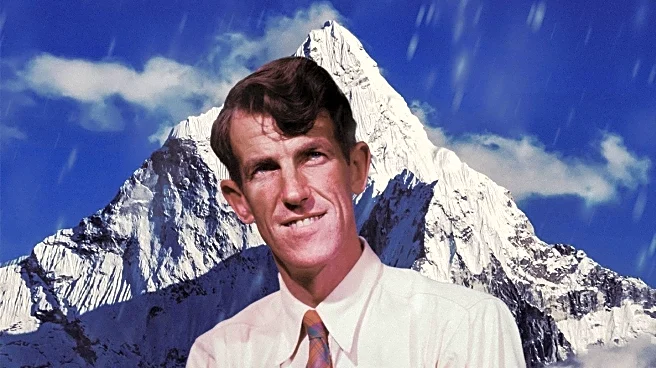What's Happening?
Alec Luhn, a 38-year-old climate journalist, was dramatically rescued after surviving six days on a remote mountain in Norway. Luhn, who has worked for major publications like The Guardian and The New York Times, embarked on a solo hike on July 31 from Odda, Norway. Disaster struck when his boot broke, causing him to fall and sustain severe injuries, including a broken femur and fractured pelvis. With limited food and no water, Luhn resorted to drinking his own urine until rain provided some relief. Despite adverse weather conditions, Norwegian rescue teams located him on August 6, after he signaled them with a red cloth. Luhn was airlifted to Haukeland University Hospital in Bergen, where he is recovering from frostbite and other injuries.
Why It's Important?
Luhn's ordeal underscores the risks associated with solo hiking in remote areas, highlighting the importance of preparation and safety measures. His experience serves as a cautionary tale for adventurers, emphasizing the need for proper equipment and communication devices. The incident also showcases the effectiveness and dedication of Norwegian rescue operations, which successfully navigated challenging weather conditions to save Luhn. This event may influence public policy regarding outdoor safety and emergency response protocols, potentially leading to increased awareness and resources for hikers and travelers.
What's Next?
Luhn is expected to continue his recovery in Britain after receiving initial treatment in Norway. His experience may lead to personal changes, such as reconsidering solo hiking trips and prioritizing family connections. Additionally, Luhn's story could inspire discussions on improving safety measures for hikers, including the use of satellite phones and tracking devices. The incident may also prompt travel and outdoor organizations to enhance educational efforts on the risks of solo adventures and the importance of preparedness.
Beyond the Headlines
Luhn's rescue highlights the emotional and psychological aspects of survival, as he credits thoughts of his family for sustaining his will to live. This dimension of the story may resonate with audiences, emphasizing the human element in extreme situations. Furthermore, Luhn's experience could contribute to broader conversations about the balance between adventure and safety, as well as the role of family support in overcoming life-threatening challenges.









